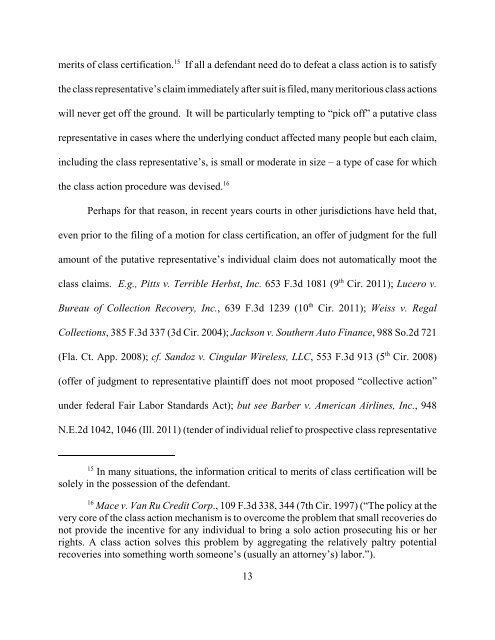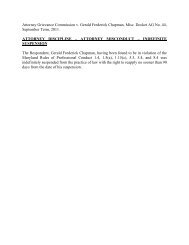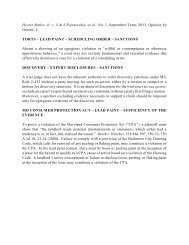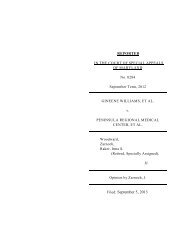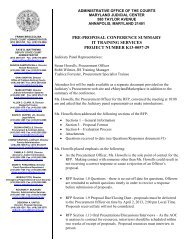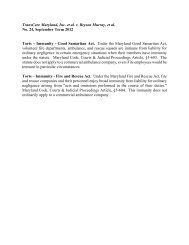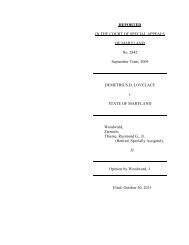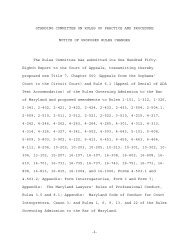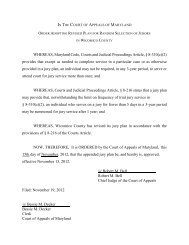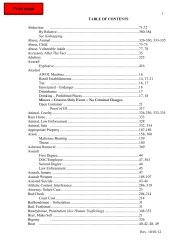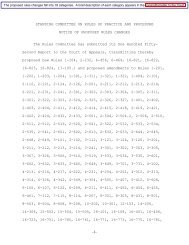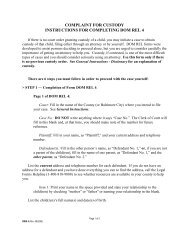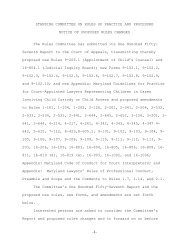Anthony M. Frazier v. Castle Ford, Ltd., f/k/a ... - Maryland Courts
Anthony M. Frazier v. Castle Ford, Ltd., f/k/a ... - Maryland Courts
Anthony M. Frazier v. Castle Ford, Ltd., f/k/a ... - Maryland Courts
Create successful ePaper yourself
Turn your PDF publications into a flip-book with our unique Google optimized e-Paper software.
merits of class certification. 15<br />
If all a defendant need do to defeat a class action is to satisfy<br />
the class representative’s claim immediately after suit is filed, many meritorious class actions<br />
will never get off the ground. It will be particularly tempting to “pick off” a putative class<br />
representative in cases where the underlying conduct affected many people but each claim,<br />
including the class representative’s, is small or moderate in size – a type of case for which<br />
the class action procedure was devised. 16<br />
Perhaps for that reason, in recent years courts in other jurisdictions have held that,<br />
even prior to the filing of a motion for class certification, an offer of judgment for the full<br />
amount of the putative representative’s individual claim does not automatically moot the<br />
class claims. E.g., Pitts v. Terrible Herbst, Inc. 653 F.3d 1081 (9 th Cir. 2011); Lucero v.<br />
Bureau of Collection Recovery, Inc., 639 F.3d 1239 (10 th Cir. 2011); Weiss v. Regal<br />
Collections, 385 F.3d 337 (3d Cir. 2004); Jackson v. Southern Auto Finance, 988 So.2d 721<br />
(Fla. Ct. App. 2008); cf. Sandoz v. Cingular Wireless, LLC, 553 F.3d 913 (5 th Cir. 2008)<br />
(offer of judgment to representative plaintiff does not moot proposed “collective action”<br />
under federal Fair Labor Standards Act); but see Barber v. American Airlines, Inc., 948<br />
N.E.2d 1042, 1046 (Ill. 2011) (tender of individual relief to prospective class representative<br />
15 In many situations, the information critical to merits of class certification will be<br />
solely in the possession of the defendant.<br />
16 Mace v. Van Ru Credit Corp., 109 F.3d 338, 344 (7th Cir. 1997) (“The policy at the<br />
very core of the class action mechanism is to overcome the problem that small recoveries do<br />
not provide the incentive for any individual to bring a solo action prosecuting his or her<br />
rights. A class action solves this problem by aggregating the relatively paltry potential<br />
recoveries into something worth someone’s (usually an attorney’s) labor.”).<br />
13


